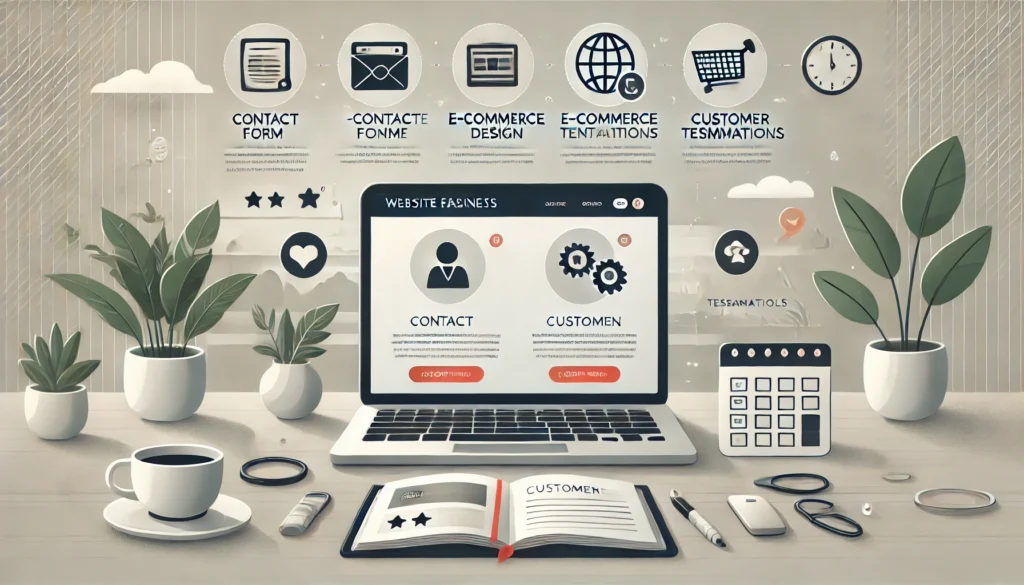How to Start a Small Business Online
Starting a small business online is more accessible than ever. With the internet offering limitless opportunities, entrepreneurs can create their digital storefronts, reach global audiences, and work from virtually anywhere. Whether selling handmade crafts, offering consulting services or building a software product, the key to success lies in thoughtful planning and execution. Let’s dive into the step-by-step process to help you launch your online business effectively.
Choosing the Right Business Idea
Identifying a Niche Based on Skills and Interests
The first step to starting any business is determining what you’re passionate about and skilled at. Do you enjoy crafting? Consider selling custom-made items. Are you knowledgeable about finance? You might offer online consulting services.
Conducting Market Research
Once you have an idea, validate it by researching the market. Use tools like Google Trends or online forums to identify demand. Check out competitors and see how you can offer a unique value proposition.
Assessing Profitability and Demand
Not all good ideas translate into profitable businesses. Estimate costs, potential revenue, and customer lifetime value to ensure your venture is financially viable.
Creating a Business Plan
Importance of a Clear Roadmap
A business plan acts as a guide for your journey. It helps you define objectives, strategies, and the resources needed to achieve your goals.
Components of an Online Business Plan
Include an executive summary, market analysis, marketing strategies, and financial projections. Clearly define your product or service, your target audience, and how you’ll stand out.
Setting Short-Term and Long-Term Goals
Establish SMART (Specific, Measurable, Achievable, Relevant, Time-bound) goals. These keep you focused and motivated as you grow your business.
Registering Your Business
Picking a Business Name and Legal Structure
Choose a name that reflects your brand and resonates with your audience. Decide whether you’ll operate as a sole proprietor, LLC, or corporation, depending on your needs.
Registering Your Business Domain
Secure a domain name that matches your business name. Platforms like GoDaddy or Namecheap make it easy.
Complying with Legal and Tax Requirements
Research the regulations in your area, including necessary permits and tax obligations. Consult an attorney or accountant if needed.
Building Your Online Presence
Importance of a Professional Website
Your website is your virtual storefront. Ensure it’s visually appealing, user-friendly, and responsive across devices.
Essential Website Features for Small Businesses

- Clear navigation.
- Contact information.
- Secure payment processing.
- A well-organized product or service catalog.
Integrating E-commerce Platforms if Necessary
If selling products, use platforms like Shopify, WooCommerce, or Etsy. They offer easy setups and built-in tools for small businesses.
Optimizing for SEO and Content Strategy
Basics of SEO for Beginners
Search Engine Optimization (SEO) is critical for driving organic traffic to your website. Start with keyword research using tools like Google Keyword Planner or Ahrefs. Identify terms your audience searches for and incorporate them into your content.
Crafting High-Quality Content for Your Audience
Content is king. Write blog posts, guides, and how-to articles that address your audience’s pain points and interests. Ensure your content is informative, engaging, and aligned with the keywords you’ve researched.
Leveraging Blogs and Social Media for Growth
A regularly updated blog helps build authority in your niche. Combine this with social media platforms to promote your content and engage with your audience. Platforms like Instagram, Facebook, and LinkedIn can help expand your reach.
Setting Up Online Marketing Campaigns
Introduction to Digital Marketing Strategies
Digital marketing is essential to promote your online business. Start with the basics, such as email marketing, content marketing, and social media marketing.
Using Google Ads and Social Media Ads
Paid advertisements can deliver immediate results. Platforms like Google Ads let you target specific keywords, while social media platforms like Facebook and Instagram allow audience-specific targeting.
Building an Email Marketing List
Email marketing remains one of the most effective ways to retain customers. Offer value, such as a free eBook or discount, in exchange for email sign-ups. Use tools like Mailchimp or ConvertKit to manage your campaigns.
Managing Finances and Payment Systems
Choosing the Right Payment Gateway
Integrate a reliable payment gateway like PayPal, Stripe, or Square for online transactions. These platforms ensure secure and seamless payment experiences for your customers.
Budgeting and Financial Planning for Small Businesses
Track every expense and plan your budget meticulously. Tools like QuickBooks or Wave can simplify accounting and bookkeeping.
Tools for Tracking Expenses and Income
Use apps or software to automate your financial management. These tools can generate reports that give you a clear picture of your business health.
Engaging with Your Target Audience
Building a Community Around Your Brand
Foster relationships with your customers by engaging them on social media, forums, or email newsletters. Encourage conversations to create a loyal community.
Tips for Excellent Customer Service
Prompt responses, resolving complaints effectively, and exceeding expectations can turn one-time buyers into repeat customers.
Using Feedback to Improve
Actively collect feedback via surveys or reviews and use it to refine your offerings. Customers value businesses that listen to their concerns.
Analyzing and Growing Your Business
Using Analytics to Track Performance
Leverage tools like Google Analytics to monitor traffic, user behavior, and conversion rates. These insights help you make data-driven decisions.
Adapting to Trends and Customer Preferences
Stay updated with industry trends and tweak your strategies to meet evolving customer needs. Staying agile is crucial in the ever-changing online business landscape.
Scaling Your Online Business Over Time
Once your business is stable, consider expanding your product line, entering new markets, or increasing marketing efforts. Collaborations and partnerships can also drive growth.
Conclusion
Starting a small business online is a rewarding journey, filled with challenges and opportunities. From brainstorming ideas to scaling operations, every step matters. By following the outlined steps—choosing the right business idea, crafting a solid business plan, and optimizing your online presence—you can set the foundation for success. Remember, persistence and adaptability are your greatest allies. So, what are you waiting for? Start building your dream online business today!
FAQs
1. What’s the best online business to start with minimal investment?
Consider service-based businesses like consulting, freelance writing, or virtual assistance. These require minimal upfront costs compared to product-based ventures.
2. Do I need technical skills to start an online business?
No, you can use user-friendly platforms like Shopify, Wix, or WordPress to set up your website without technical expertise.
3. How much does it cost to start a small online business?
Costs vary but can range from $500 to $5,000 depending on the business type, website features, and marketing strategies.
4. What platforms are best for creating an online store?
Platforms like Shopify, WooCommerce, and BigCommerce are ideal for creating and managing online stores.
5. How can I stay competitive in the online marketplace?
Focus on customer experience, consistent marketing, and adapting to trends. Competitive pricing and quality service also make a significant difference.



